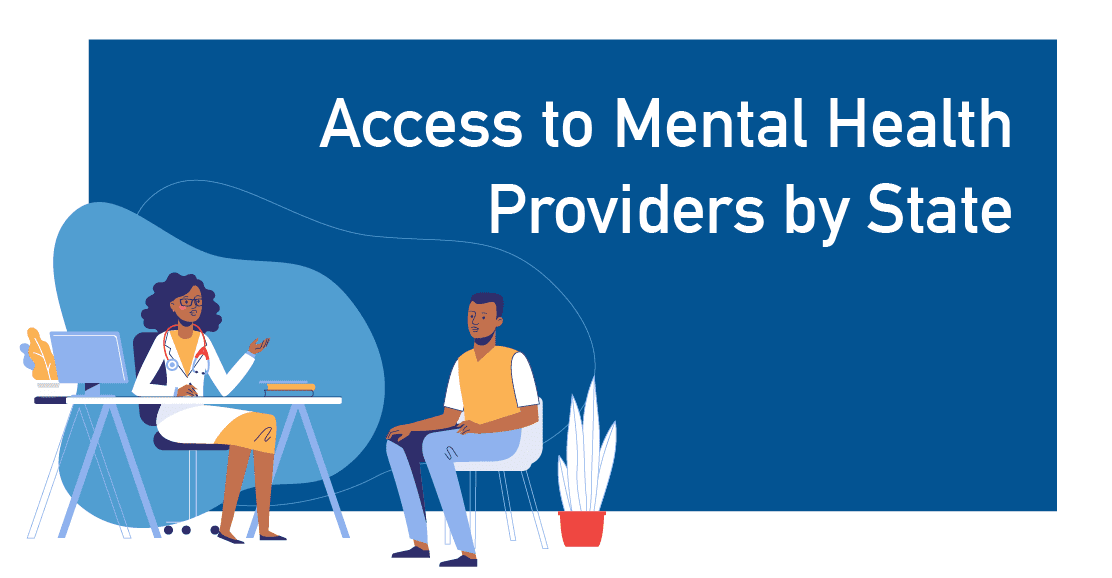The Urgent Need For Better Mental Healthcare Access

Table of Contents
The Current State of Mental Healthcare Access
The reality is that accessing adequate mental healthcare remains a significant challenge for millions worldwide. This stems from a confluence of factors, creating a complex web of obstacles.
Limited Availability of Mental Health Professionals
A critical factor limiting mental healthcare access is the sheer shortage of mental health professionals. This shortage manifests in several ways:
- Mental health professionals shortage: Many countries face a dramatic deficit of psychiatrists, psychologists, therapists, and other mental health specialists. This shortfall is particularly acute in rural and underserved communities.
- Access to care disparities: Geographic location significantly impacts access. Rural populations often have limited or no access to mental health services, exacerbating existing health disparities.
- Long waiting lists for appointments: Even in urban areas with more professionals, waiting times for appointments can be excessively long, delaying crucial treatment.
- Mental health treatment affordability: The high cost of therapy, coupled with inadequate insurance coverage, creates a significant barrier for many individuals, particularly those with low incomes. This often means choosing between essential needs and mental healthcare.
These factors create a situation where individuals in need often face insurmountable obstacles to receiving timely and appropriate care, resulting in delayed diagnoses and treatment, worsening symptoms, and increased risk of suicide.
Stigma and Societal Barriers to Seeking Help
Beyond the lack of professionals, societal barriers significantly impede mental healthcare access. Stigma surrounding mental illness remains a pervasive issue:
- Mental health stigma: The persistent stigma associated with mental illness prevents many individuals from seeking help. Fear of judgment, discrimination, and social exclusion can be overwhelming deterrents.
- Help-seeking behavior: This fear often leads to delayed or avoided help-seeking, worsening mental health conditions.
- Lack of awareness and education about mental health: Insufficient public education and awareness about mental health issues contribute to the stigma and hinder early intervention.
- Cultural barriers and language barriers preventing access: Cultural differences and language barriers can further complicate access, particularly for immigrant and refugee populations. Finding culturally competent care is paramount.
Addressing stigma requires comprehensive strategies, including public awareness campaigns, educational programs, and media portrayals that accurately represent mental illness and promote understanding.
Inadequate Funding and Resource Allocation
The lack of sufficient funding and resources severely impacts the availability and quality of mental healthcare services:
- Mental health funding: Insufficient government funding restricts the expansion of services, limits the recruitment and retention of mental health professionals, and hinders the development of innovative treatments.
- Resource allocation: Existing resources are often inadequately allocated, with mental health services receiving a disproportionately small share of overall healthcare budgets.
- Lack of community-based mental health programs: A shortage of community-based programs limits access to preventative care and early intervention services.
- Inadequate training for primary care physicians in mental health screening and management: Many primary care physicians lack adequate training to effectively screen for and manage mental health conditions, leading to missed diagnoses and delayed referrals.
This lack of investment perpetuates a cycle of inadequate care, resulting in substantial societal costs, including increased hospitalizations, lost productivity, and decreased quality of life.
Potential Solutions for Improving Mental Healthcare Access
Addressing the urgent need for improved mental healthcare access requires a multi-pronged approach targeting the issues outlined above.
Increasing the Number of Mental Health Professionals
Increasing the number of mental health professionals is crucial. This requires a concerted effort:
- Mental health workforce development: Increased funding for mental health education and training programs is essential to attract and train a new generation of professionals.
- Telehealth: Expanding telehealth services can improve access, particularly in rural and underserved areas.
- Loan forgiveness programs for mental health professionals: Incentives such as loan forgiveness programs can encourage individuals to pursue careers in mental healthcare.
- Incentives for professionals to work in underserved areas: Financial and other incentives can attract professionals to work in areas currently lacking adequate services.
These strategies are essential to ensure that the demand for mental healthcare services is met by an adequately trained and geographically dispersed workforce.
Addressing Stigma and Promoting Mental Health Awareness
Reducing stigma and promoting mental health awareness are paramount:
- Mental health awareness campaigns: Large-scale public awareness campaigns can help destigmatize mental illness and encourage help-seeking.
- Stigma reduction strategies: These campaigns must be culturally sensitive and utilize effective communication strategies.
- Mental health education: Comprehensive mental health education in schools and communities can promote early identification and intervention.
- Support groups and peer support networks: Creating supportive environments can provide crucial peer support and reduce feelings of isolation.
By challenging negative perceptions and promoting open conversations, we can create a more supportive and understanding society.
Improving Mental Healthcare Policy and Funding
Fundamental policy changes and increased funding are critical for sustainable improvements:
- Mental health policy reform: Governments must prioritize mental health by enacting policies that expand access to care, improve funding, and streamline service delivery.
- Insurance coverage for mental health: Expanding insurance coverage to ensure affordable access to mental health services is crucial.
- Integrated mental health care: Developing integrated care models that integrate mental health services with primary care can improve early detection and treatment.
- Strengthening community-based mental health programs: Investing in community-based programs promotes preventative care and early intervention.
These policy changes are crucial for creating a more equitable and accessible mental healthcare system.
Conclusion
The urgent need for better mental healthcare access is undeniable. The current state of affairs, marked by professional shortages, societal stigma, and inadequate funding, leaves millions without the care they desperately need. Improving mental healthcare access requires a concerted effort encompassing increased funding for training and services, comprehensive stigma-reduction campaigns, and significant policy reforms.
We must all advocate for better mental health services. Contact your elected officials, support mental health organizations, and, if you are struggling, seek help for mental health issues. Let's work together to build a future where mental healthcare is accessible, affordable, and available to all who need it. Prioritizing mental health is not just about individual well-being; it’s about building a healthier, more resilient, and compassionate society.

Featured Posts
-
 Souness On Arsenal The Critical Error That Cost Them The League
May 02, 2025
Souness On Arsenal The Critical Error That Cost Them The League
May 02, 2025 -
 Friday School Schedule Changes Due To Snow And Ice Trash Collection Updates
May 02, 2025
Friday School Schedule Changes Due To Snow And Ice Trash Collection Updates
May 02, 2025 -
 Fortnite Cosmetic Changes Refund Policy Update Points To Future Developments
May 02, 2025
Fortnite Cosmetic Changes Refund Policy Update Points To Future Developments
May 02, 2025 -
 Tulsa Crews Prepare Roads For Expected Sleet And Snow
May 02, 2025
Tulsa Crews Prepare Roads For Expected Sleet And Snow
May 02, 2025 -
 Ethniki Stratigiki P Syxikis Ygeias 2025 2028 Kyries Draseis Kai Stoxoi
May 02, 2025
Ethniki Stratigiki P Syxikis Ygeias 2025 2028 Kyries Draseis Kai Stoxoi
May 02, 2025
